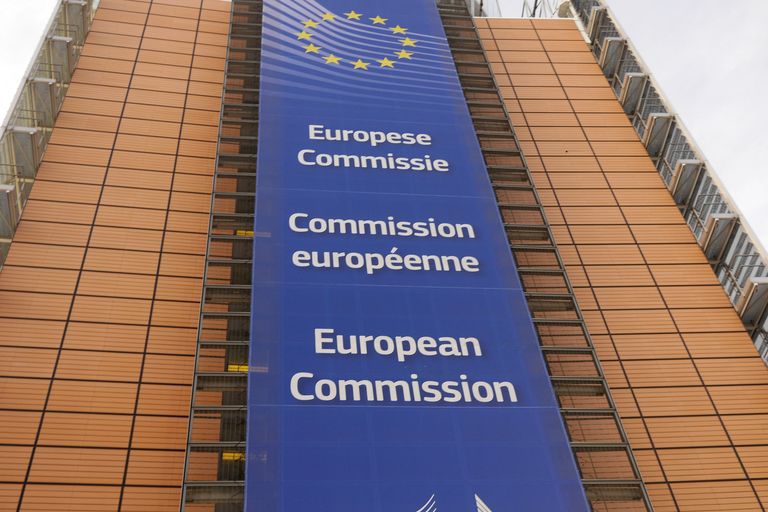Original article (in Bosnian) was published on 19/5/2025; Author: Amar Karađuz
The ruling of the General Court of the EU against the European Commission over a lack of transparency regarding vaccine procurement messages has become the basis for manipulative claims that Ursula von der Leyen was found guilty of covering up information about vaccines.
On May 14, 2025, the General Court of the European Union (EU), which operates under the Court of Justice of the EU, issued a ruling in a case in which The New York Times and its then-Brussels correspondent Matina Stevis-Gridneff sued the European Commission (EC). The magazine and its correspondent filed the lawsuit seeking access to messages exchanged between EC President Ursula von der Leyen and Pfizer CEO Albert Bourla. The messages concerned negotiations over the procurement of COVID-19 vaccines.
In its ruling, the court found that the European Commission failed to provide a convincing explanation as to why it could not locate the requested messages, thereby violating the principle of good administration. This overturned an earlier EC decision in which journalist Stevis-Gridneff was told that the institution did not possess any documentation of the correspondence.
In the context of this news, a Facebook post shared on May 14 claims that the Court of Justice of the EU had declared EC President Ursula von der Leyen “responsible for covering up information about vaccine procurement contracts”.
The Court of Justice of the EU declared Ursula von der Leyen responsible for covering up information about vaccine procurement contracts from 2021 to 2023.
In addition to the aforementioned claim, some Facebook users, along with factually accurate information about the ruling, also added claims that the court stated “Ursula von der Leyen is guilty”, and that it “convicted von der Leyen” for secret text messages sent to Pfizer.
What Does the Ruling Actually Say?
The court did not declare Ursula von der Leyen “responsible for covering up information”, as the case was not brought against her personally, nor did the lawsuit include claims or legal grounds holding her accountable for concealing information. The court ruled on the justification of the European Commission’s decision not to provide a New York Times journalist with information about the correspondence between the EC President and the CEO of Pfizer regarding the vaccine procurement negotiations.
According to Politico magazine, the case began in 2022 when The New York Times journalist Matina Stevis submitted a request for access to information, namely the messages between von der Leyen and Bourla, through which the vaccine procurement negotiations took place.
The existence of such messages was hinted at by Bourla in a 2021 interview with The New York Times. According to Politico, the contract under which 1.8 billion doses of the Pfizer-BioNTech COVID-19 vaccine were procured was the largest Brussels had signed.
However, the EC initially claimed that the messages, due to their transient nature, did not meet the criteria to be considered information of public importance under its internal rules, and that they could not be found in the archives, Politico reports. The EC was unclear about the existence of the messages, while at the same time denying their significance. The decision to deny access to the requested information prompted The New York Times to challenge it before the General Court of the EU.
Therefore, the proceedings were conducted against the European Commission as an institution, not against the President personally, even though the messages in question were exchanged by von der Leyen. The court determined that the EC violated the principle of good administration because it failed to provide a convincing explanation for why it could not locate the requested messages.
Conclusion
84 Therefore, it must be found that the Commission, in the contested decision, did not provide a convincing explanation for why it could not locate the requested documents.
(…)
86 Accordingly, the third plea (where the plaintiffs essentially challenge the legality of the EC’s refusal to disclose the requested documents) is upheld, and the contested decision is annulled, without the need to decide on the remaining pleas or on the applicants’ request for the taking of evidence.
Nonetheless, according to analyses by multiple media outlets (link, link), the ruling could indeed impact the reputation of the EC President because the requested information pertained to messages sent by von der Leyen. As Politico notes, “the ruling is likely to have major consequences for transparency and accountability in the EU and represents a serious blow to Ursula von der Leyen’s reputation”.
Moreover, since the initiation of the proceedings, the refusal to provide the requested information has been characterized as a scandal dubbed “Pfizergate”. The term is derived from the name of the pharmaceutical company Pfizer and the suffix “-gate”, often used in the media to denote political and corruption scandals, modelled after the “Watergate” scandal of the 1970s.
Therefore, we consider the claims that the European court found von der Leyen guilty of covering up information about the Pfizer vaccine contracts to be a manipulation of facts.



